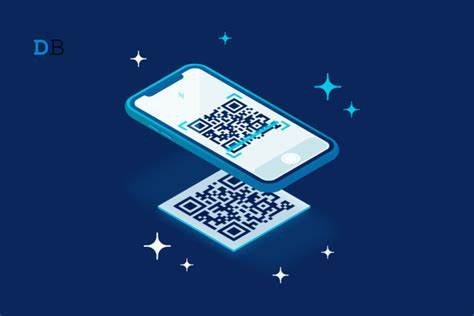Quick Response (QR) codes have emerged as a pivotal technology in Nigeria’s rapidly evolving digital economy. With widespread mobile phone penetration and a push for financial inclusion, QR codes facilitate seamless, secure, and cost-effective transactions. Supported by regulatory frameworks and fintech innovation, their adoption is reshaping how Nigerians engage in commerce, from small-scale vendors to large enterprises. This article explores three key dimensions of this transformation: financial inclusion, merchant accessibility, and regulatory support, drawing on recent examples and scholarly insights.
Read more about Tech
Enhancing Financial Inclusion
QR codes are bridging Nigeria’s financial inclusion gap, where approximately 35% of adults remain unbanked. By enabling transactions via smartphones, QR codes bypass traditional banking barriers like physical infrastructure and high costs. For instance, in rural areas, farmers use platforms like Flutterwave to receive payments for produce by sharing QR codes with buyers, eliminating the need for cash or point-of-sale (POS) devices. This aligns with global trends where QR-based payments boost access to digital economies. Social media platforms like Twitter amplify this reach, with vendors posting QR codes to receive instant payments, fostering economic participation among underserved communities.
Register to attend the Connect Nigeria Business Mixer
Empowering Merchant Accessibility
QR codes offer merchants an affordable alternative to expensive POS terminals, enabling small and micro-businesses to participate in Nigeria’s digital economy. Fintech companies like Paystack provide merchants with QR code generators that integrate with mobile banking apps, allowing instant transaction confirmations. A practical example is Lagos Street vendors who display QR codes on stalls, accepting payments from customers’ smartphones, a method popularized during the COVID-19 pandemic to reduce cash handling. This accessibility reduces setup times compared to card-based systems, which can take weeks to establish. Scholarly analysis underscores that transaction speed and convenience drive merchant adoption, transforming retail dynamics.
Sign up for the Connect Nigeria daily newsletter
Strengthening Regulatory Support
The Central Bank of Nigeria (CBN) has bolstered QR code adoption through frameworks like the 2021 QR Code Payment System guidelines, ensuring security and interoperability. The Nigeria Inter-Bank Settlement System (NIBSS) launched the New Quick Response (NQR) platform, unifying QR schemes for consistent user experiences. For example, Zenith Bank customers scan NQR codes at supermarkets, with transactions settled instantly across banks, enhancing trust (NIBSS). Regulatory emphasis on EMV QR standards ensures robust encryption, addressing fraud concerns. These measures align with global best practices, positioning Nigeria as a leader in Africa’s QR payment landscape.
Got a suggestion? Contact us: [email protected]
Conclusion
QR codes are revolutionizing Nigeria’s digital transactions by promoting financial inclusion, empowering merchants, and leveraging robust regulatory frameworks. As fintech innovation and mobile penetration grow, QR codes will continue to drive Nigeria toward a cashless society, fostering economic resilience and inclusivity.

